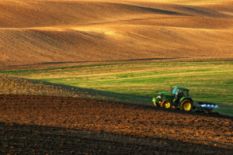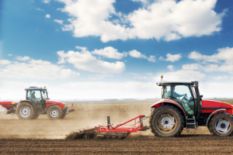Syngenta has been working in Ukraine for more than 16 years. How has the country's agrarian market been changing?
The situation has changed a lot since 2014: prices are up, the tax law has changed, and the exchange rate of the national currency is fluctuating. Farms have changed their modus operandi accordingly: they became more professional. Now they are not just manufacturers but businessmen. Today they care not so much about how many tonnes of produce they have, but rather the profit they will get. Farmers have learned to plan their business with regard to exchange rate volatility and manage financial and weather risks. And they do it magnificently.
Neighbouring countries are looking at Ukraine, feeling jealous of the way agricultural producers work here.
So, the crisis stimulated medium-sized business to work in a new way?
Not only the medium-sized business but any – from small to large. Let me draw an example of a small enterprise: the manager, who previously sought to sell the harvest as soon as possible, is now waiting for a favourable price at the Chicago Stock Exchange to form the price of his produce on its basis. He even learnt to plan his returns. This is done in a very professional way in Ukraine. Perhaps even better than in England.
That sounds like a slight exaggeration...
No, that is true. Your agrarians have learned to use all the leverages in business to sell forward, sign long-term deals with customers and processing companies.
Apart from high professionalism, what makes the Ukrainian agrarian market stand apart?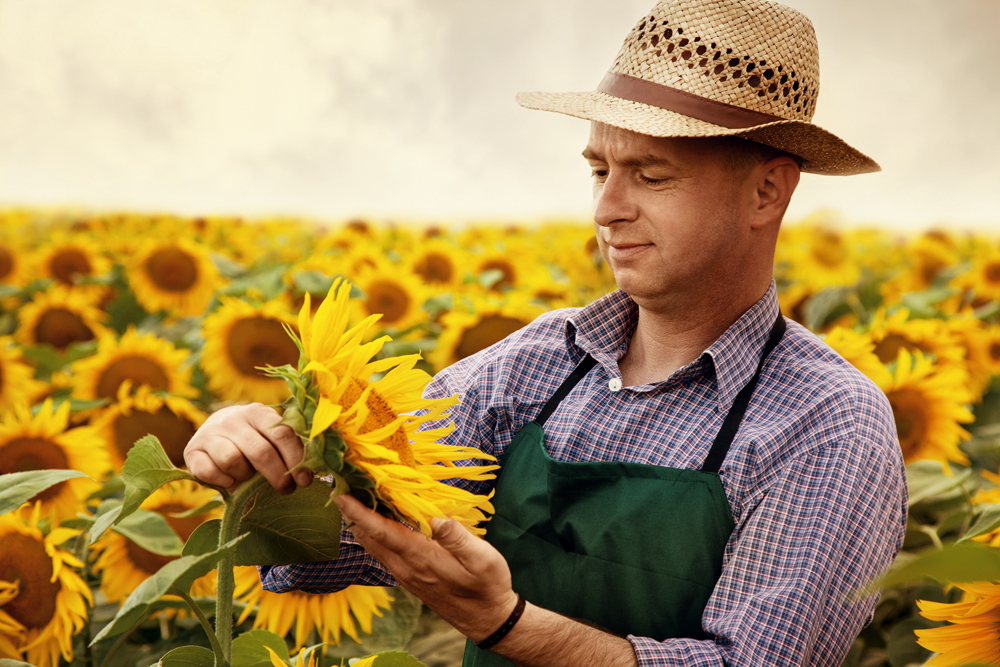
First of all, it is an export-oriented market. This opens up great opportunities: you can tie up your business to an exchange, have free access to foreign currency, and be less dependent on rate fluctuations. The second feature is that it offers broader opportunities for growth and intensification. In Ukraine, you can invest in agricultural production and have higher yields because of its natural conditions. The third feature is the stability and reliability of the Ukrainian agrarian business.
Overall, agricultural producers here are strong, solid enterprises, in which you can invest your own or borrowed money without particular risks. The term bankable is quite appropriate for them as banks are ready to issue loans to them because their assets and financial standing check all the boxes. We check very many farms' reports and mostly these are profitable, solid businesses.
How does the absence of the land market affect the country's investment climate?
Naturally, when you can buy land, like in neighbouring Russia, this makes your business more interesting. Land is a good way to finance your business and earn extra money. Therefore, when Ukraine opens its land market, it will be easier to do agribusiness here. But you can also work on leased land which many farms do. The lack of own land is not an obstacle to a successful agricultural business.
Considering that the volume of capital investment in agriculture has increased, the investment climate in the country is recovering…
Yes, the agricultural sector is very significant for the Ukrainian economy, with its share in GDP reaching 11.6% in 2016. Moreover, this country's agricultural production is growing faster than in all other European countries. And there are greater prospects for further growth. Some may complain about corruption but I, honestly, has never come across it in Ukraine.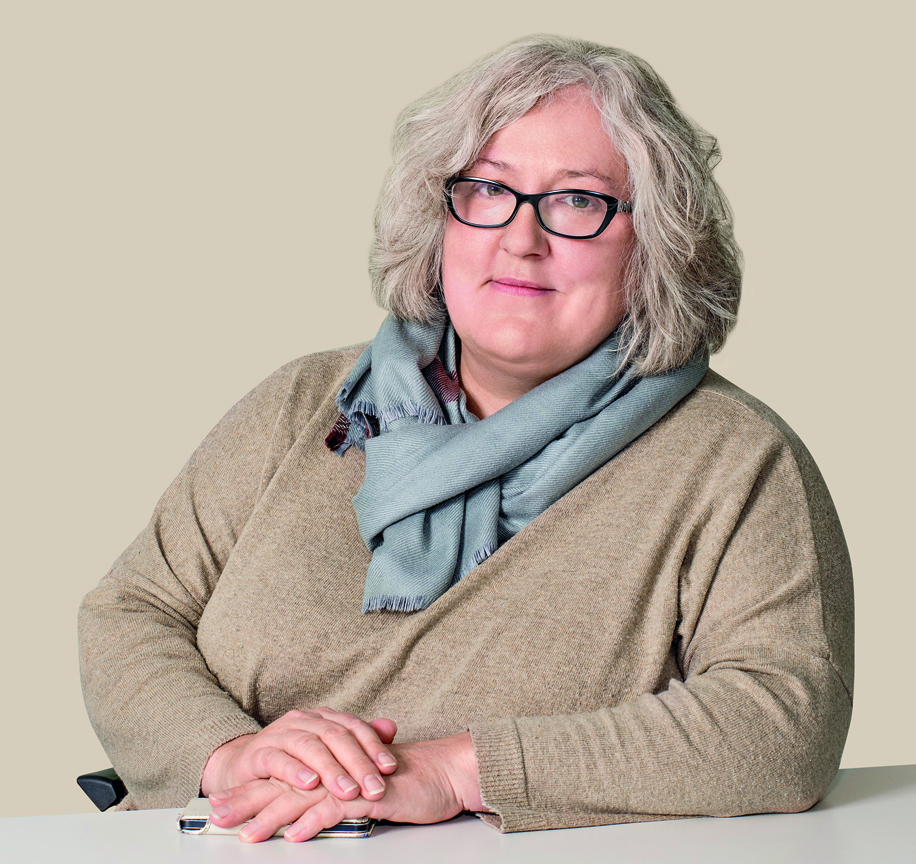
I believe it is not difficult to work here. You have everything that is necessary to draw investment: assets, land and brainpower of qualified personnel.
So, Ukraine-specific risks like the armed conflict, did not stop your company…
Because we work in the unaffected areas. Though we also have business around the antiterrorist operation area. Farmers do not are not considered more risky simply because they work close to the armed conflict. Conscientious people do not change regardless of various difficulties… So, the risks have not changed significantly. At least, for our company. By the way, we signed the first forward contracts in Ukraine when the armed conflict was raging. And all the businesses delivered on them… Because people did not change.
How would you describe the potential of the Ukrainian agrarian sector? When and how can it be unlocked?
I would not assess this potential in tonnes because it is not the most important. The potential profitability of the Ukrainian agribusiness is far more important. Namely this indicator ensures the stability of a company and ensures its long-term operation and investment capacity. An opportunity to unlock the profitability potential emerges when an enterprise plans its sales, follows market changes, stock prices, searches and finds relevant cheap funding, and hedges its risks. If you meet all these terms, skilfully manage your incomes, you will be profitable as soon as today even at a lower yield. For example, neighbouring states have higher yields but do not know how to sell their produce, which is the worst scenario.
For example, the corn yield in Ukraine is around 5,600 t per hectare whereas in the USA it is 10 t per hectare. So, there is room to grow and to improve the yield with advanced technologies and products. But investing in products and technologies requires businesses to have a strong foundation and manageable income is the basis of this foundation.
Just several years ago Ukraine ranked 36 in terms of global sales by your company, now it is No 8. How has this growth been achieved?
First, thanks to the growth of the market of seeds and crop protection agents in Ukraine and the purchase capacity of local agricultural producers, their preparedness to buy more expensive products of higher quality. Second, the company has a good team. Third, the situation in other markets has changed.
Agriculture intensification in Ukraine is advancing at a higher speed than in other countries. What advantage do Ukrainian agrarians have over their European competitors? They have no subsidies, which means they can only rely on themselves. For example, English farmers may soon lose subsidies after the UK leaves the EU. And they are now thinking how to save on seeds and crop protection products, as a result of which the British market is shrinking. I even had an idea to take Ukrainian farmers to England to share their experience of working without subsidies.
There is one more country with developed agriculture where farmers do not rely on subsidies. It is New Zealand. When subsidies were cancelled there, agricultural producers had to change their approach. And the most sustainable and professional ones survived. And Ukraine is a country of professionals because there were no subsidies here.
ChemChina and Syngenta closed a deal in the summer. What has changed in the Ukrainian market of seeds and crop protection products as a result of the deal?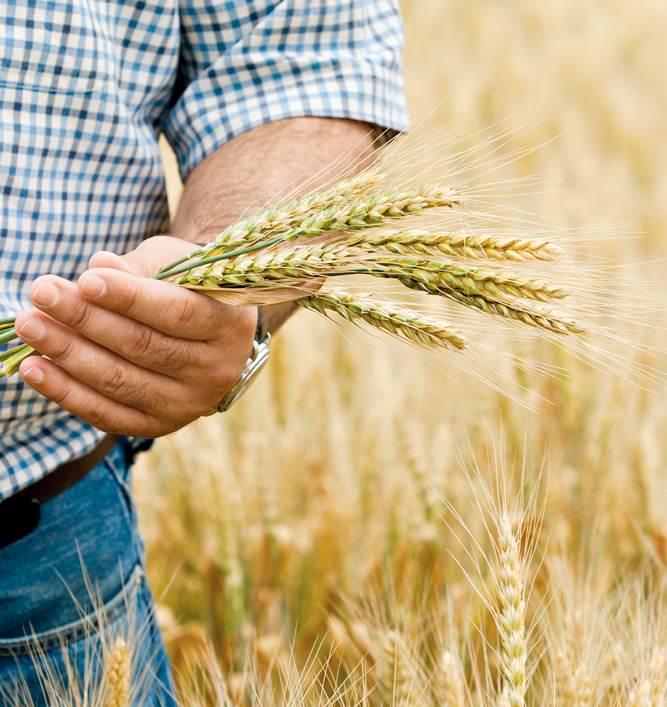
Nothing perhaps will change for Ukraine. We will continue business as usual. Things may even change for the better because investment, including in the Ukrainian division, will increase with the arrival of the new owner. We will expand the sales team, get closer to clients and will be able to react to market demands more promptly. There are plans to invest in the expansion of research stations in Ukraine. This year we opened a research breeding center for corn and sunflower in Dnipropetrovsk Region and we will continue efforts in this direction.
What financial tools offered by the company enjoy the top demand?
We developed "Financial Solutions" programmes for agrarian businesses of any type and size. One of the latest ones is an index insurance program called MeteoProtection. It is an innovative agricultural insurance tool for the Ukrainian market. If there is not enough precipitation and/or temperatures on the insured field are critically high during grain flowering and filling, the farmer will be compensated for the cost of crop protection products and seeds. A compensation will not require an inspection of crops neither the farmer will have to collect any documented proof. Whereas last year 40 farms took part in the programme, there were as many as 159 during the season of 2017. There is also a growing interest in forward programmes. The number of participants has increased five times since their launch in 2014.
How long have you worked in Ukraine and how would you describe this period of your life?
I first visited Ukraine in 1993 and then came to work here in 2013. I was born in England but I moved to Ukraine from Russia. My arrival in Ukraine marked a very successful period for me because working with Ukrainian agrarians is enjoyable and not difficult at all. I met people who, despite all the problems, managed to establish their businesses, did not throw in the towel and continued successful operation.
Are you comfortable living in Ukraine?
Yes. People here have a sense of humour and this helps them deal with problems. Except perhaps for bad roads (laughing) but they are getting better, too.
